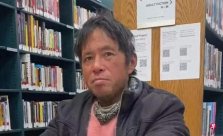I published a China -US co -managed radical Taiwan independence in the United Morning Post before the Taiwan election?(Edition of December 15, 2023) article, the interaction of the three parties in China, the United States and Taiwan after the election seems to be confirming some of the thoughts.A few days before the election, Liu Jianchao, Minister of the Mainland Government, visited the United States. It should have expressed to the United States that Beijing may promote the concern of radical Taiwan independence after Beijing's election.While the National Security Council of the White House visited the United States, a press conference for the Taiwan election was held. Except for the reiteration of the United States, a Chinese policy that did not support Taiwan independence and the United States had not changed, and a sentence has not been mentioned for many years.Stance: As long as it is solved in a peaceful way, the U.S.'s ultimate solutions to cross -strait differences will not hold positions.
In the past few years, Washington's actions on Taiwan have made Beijing more and more worried that Washington is trying to make the two sides permanently split, that is, against any form of unity.When Xi Jinping and Biden met in San Francisco last November, they called on the United States to express their support for peaceful unity on both sides of the strait.Now Washington does not have a position in peace reunification. Although there is still a distance to support peace and reunification, it finally shows that it will not oppose peace reunification, so it seems to send an active guarantee signal to Beijing.Therefore, the interaction between China and the United States before the election is relatively positive, creating an atmosphere of common management of radical Taiwan independence.
After the election, Beijing's response to the results of the election is relatively low -key. In addition to the fact that the Lai government in the future will be greatly balanced in the Legislative Yuan, it may be reduced to create more time and space for the United States to restrict Lai Qingde first.Washington immediately sent an unofficial delegation to visit Taiwan. In addition to congratulations to Lai, it is estimated that he also reminded him not to engage in radical Taiwan independence.After Biden answered questions from the Taiwan election, he only reiterated one sentence when asking questions: We do not support Taiwan independence.Two weeks after the election, the Taiwan Strait was basically calm, because the three parties were more restrained, and it seemed to have found a new balance point.
Many people have begun to believe that the era when China -US co -management Taiwan independence has arrived again.However, we must distinguish between "Taiwan independence" and "radical Taiwan independence", because although China and the United States can control "radical Taiwan independence" in the current situation, they cannot control various other "Taiwan independence" behaviors in Beijing's eyes.Because Washington does not think that these behaviors are Taiwan independence, and even support these behaviors of Taiwan independence in Beijing.For example, the "cultural Taiwan independence" in Beijing's eyes, "flexible Taiwan independence", "gradual Taiwan independence", "diplomatic Taiwan independence", "Yimei plot independence", etc., are the targets of Beijing's blows, but they have also received sympathy and support from Washington.Especially "leaning on the beauty", without Washington's cooperation and even encouragement, it is impossible for Taipei to "rely on beauty".Similar to Washington, Taiwanese society is increasingly sympathetic and supported by these "Taiwan independence" in Beijing's eyes. Young people in Taiwan think that these are the normal desires and behaviors of Taiwan as a "country" and should not be targeted.The support of these behaviors in Taiwan and Washington will encourage the Lai government to continue to promote "Taiwan independence". Beijing and Washington will continue to conflict in these issues of Taiwan independence and cannot achieve common control.
Which behaviors belong to "radical Taiwan independence" or "legal Taiwan independence", have the three parties in China and the United States have a clear consensus?If not, the general "Taiwan independence" behavior that the Lai government has accepted both Taiwan society and Washington has gradually developed into "radical Taiwan independence".Or although there are no "radical Taiwan independence", Taiwan independence in various forms and fields has continued to grow, so that Beijing to make Beijing's despair on peace and unity.Type situation.
The Democratic Progressive Party is a minority in the Legislative Yuan. Can the majority of the opposition be balanced by the government not to engage in radical Taiwan independence?If we look at the history of Taiwan, we will find that this is not the case.In the eight years of Chen Shuibian, the DPP was also a minority in the Legislative Yuan, but it was precisely he engaged in radical Taiwan independence.The Bian government has been frustrated for a long time in the Legislative Yuan, perhaps one of his motivation to engage in radical Taiwan independence.After the Bian government used various Taiwan independence strategies to incite the sense of resistance to the society, even the Kuomintang had to worship with the incense and follow the DPP to engage in radical Taiwan independence, such as the "return to the Alliance referendum".In the eight years of the Cai government, the DPP was the majority of the Legislative Yuan, but instead did not engage in radical Taiwan independence.Therefore, in the seemingly calm Taiwan Strait situation, the dark currents that can cause crises are far from disappearing.
The author is a senior researcher at the East Asia Research Institute of the National University of Singapore



